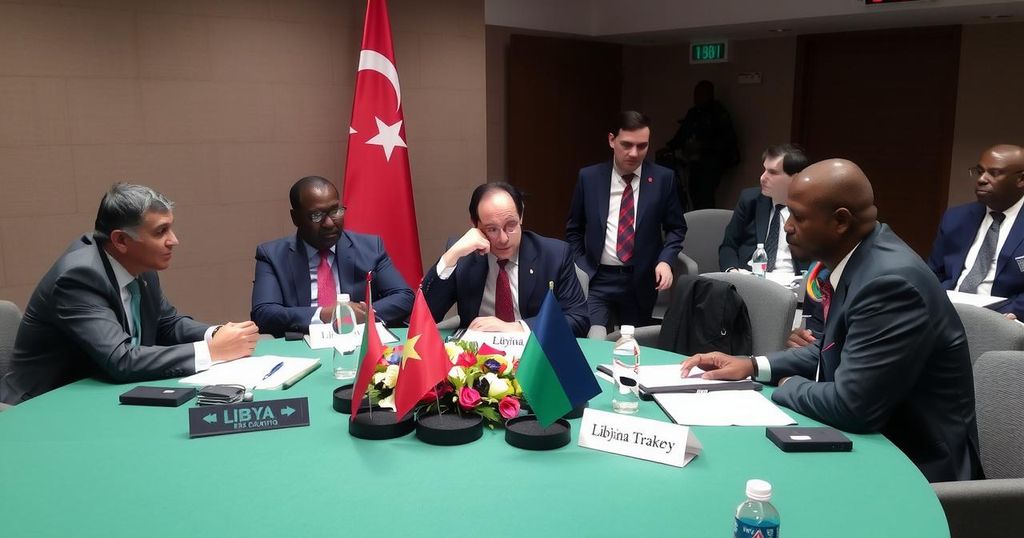The United Nations has proposed a plan for Libya to aid the organization of elections and unify competing governments. UN envoy Stephanie Koury presented the initiative, which includes an advisory committee to resolve electoral issues. Political stalemate persists, and no date for elections has been announced, although local elections have shown the potential for governance. Libya’s ambassador to the UN criticized the lack of a clear election roadmap, emphasizing the need for a coherent political strategy.
The United Nations has introduced a comprehensive initiative aimed at stabilizing Libya and facilitating the organization of elections amid ongoing political fragmentation. Presenting the plan to the Security Council, Stephanie Koury, the UN envoy to Libya, highlighted the critical need for a unified approach to reconcile competing government factions and renew the legitimacy of Libya’s institutions. The initiative includes establishing an advisory committee to address electoral matters, although the timeline for national elections remains unspecified.
Libya, a nation of approximately 6.8 million, continues to grapple with the aftermath of the 2011 uprising that toppled former dictator Moamer Kadhafi. Significant divisions persist, with a UN-recognized government operating out of Tripoli and a rival administration in the east, supported by military leader Khalifa Haftar. The diplomatic effort aims to break the current political stalemate and transition Libya towards holding national elections, which have repeatedly faced delays due to disagreements over the legal frameworks necessary for their execution.
Despite local elections demonstrating that logistical capabilities exist, Libya’s ambassador to the UN, Taher al-Sonni, articulated concerns regarding the absence of a coherent vision or timeframe for national voting, emphasizing a need for greater clarity in the political process. Meanwhile, Koury recognized both economic challenges and foreign interventions as factors undermining Libya’s stability while expressing optimism about its potential to emerge as a prosperous hub in the Mediterranean region. The UN’s commitment to fostering a unified national vision remains integral to advancing Libya’s political landscape.
The current situation in Libya is marked by political instability and division stemming from a protracted conflict that began with the ousting of Moamer Kadhafi in 2011. Following this upheaval, the country has been split between rival governments leading to a lack of unified national governance. The UN has been attempting to mediate the situation, seeking to create conditions conducive to democratic elections, which were originally scheduled for December 2021 but have since been postponed indefinitely. The proposal highlighted by the UN reflects a broader strategy aimed at restoring stability through an inclusive political initiative that addresses the underlying issues and promotes dialogue among Libyan factions.
In conclusion, the United Nations has laid out a strategic plan to assist Libya in stabilizing its political climate and organizing elections, with the intention of unifying varied governmental bodies and revitalizing its political institutions. While the initiative holds promise for progressing toward elections, the prevailing political deadlock and external influences pose significant challenges. The path toward democratization will require concerted efforts to build a shared vision among Libyans, thus fostering hope for the nation’s future as a stable Mediterranean state.
Original Source: www.al-monitor.com






